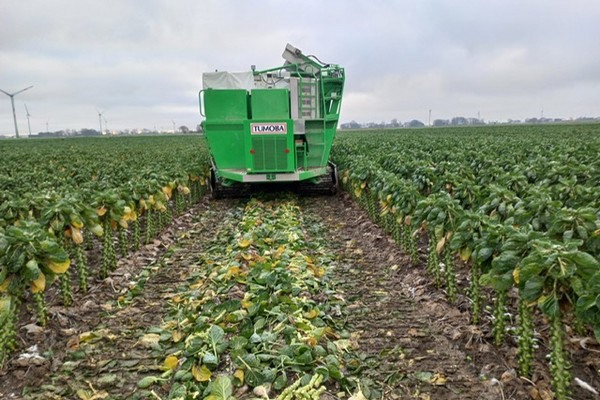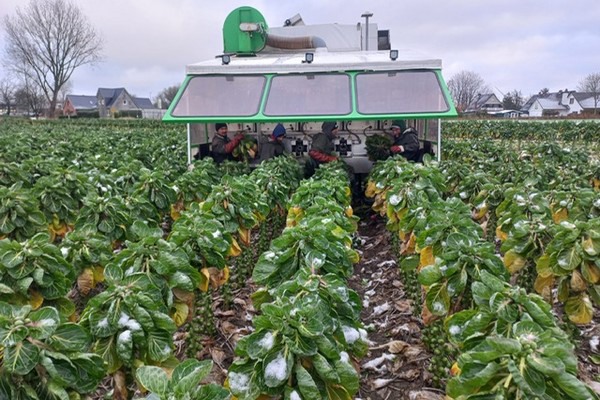The Brussels sprout yields in the Dithmarschen district were particularly modest this year. "The winter of 2022/2023 was wet, followed by a short, cold spring. Then, in the summer, it suddenly became dry, which is why we had to irrigate relatively early. From July, it rained continuously for six weeks, which in turn led to higher sorting out rates. The stocks hardly grew in the fall," says Eric Müller, Brussels sprout producer in the Dithmarschen district and owner of Hof Helse Ltd.
The tight supply of goods has accordingly affected the price situation, Müller continues. "Prices are relatively high and far above the level of previous years. However, this is problematic for retailers, as there is too little margin left in the case of markdowns. In addition, the prices contribute to very conscious shopping, which is reflected in lower purchase quantities per individual customer. Normally, many retail chains have Brussels sprouts promotions in the pre-Christmas week. This year, however, this was not the case, as the retailers decided against any price concessions in purchasing."
 © Hof Helse GmbHHof Helse Ltd produces Brussels sprouts on approximately 100 ha. This makes the company one of the leading Brussels sprout producers in Germany.
© Hof Helse GmbHHof Helse Ltd produces Brussels sprouts on approximately 100 ha. This makes the company one of the leading Brussels sprout producers in Germany.
In the traditional Brussels sprout growing countries of the Netherlands and Belgium, too, there had to be strong yield declines and corresponding shortages. "Everyone lacks goods to sell this season, which is affecting prices accordingly. Normally, the Brussels sprout business always collapses in January; but if harvesting continues as usual, some goods always pile up, after which attempts are usually made to boost sales again by means of discounts. However, due to the frost, prices are still at a very high level," says Müller, who will likely harvest the last goods in the last week of January.
 © Hof Helse GmbHBrussels sprout harvest.
© Hof Helse GmbHBrussels sprout harvest.
Consequences of the labor shortage
In addition to cost increases and difficult market conditions, Müller is critical about personnel issues as well. "Particularly with a demanding crop like Brussels sprouts, it is becoming increasingly difficult to get the required workforce. So far, we have been able to keep our cultivation area stable and the area size will remain about the same in the coming season. However, if this continues, there might eventually be an acreage reduction."
Photos: Hof Helse GmbH.
For more information:
Eric Müller
Hof Helse GmbH
Alte Landstraße 1
25709 Helse, Germany
Phone: +49 4851 93893
[email protected]










